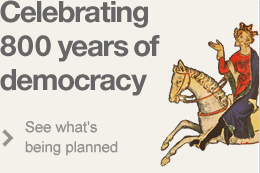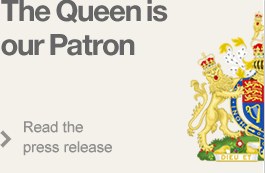By Professor Louise Wilkinson, of Canterbury Christ Church University
Joan, daughter of King John and wife of Llywelyn the Great (d. 1237)
In 1203, King John commissioned a ship to carry his illegitimate daughter Joan from Normandy to England.[i] Within a year, the English crown had lost Normandy to the French and King John, anxious to secure the borders of England, decided to arrange a prestigious marriage for his daughter that would help to achieve this. Joan’s bridegroom was none other than one of the most famous of all the Welsh princes – Llywelyn the Great, prince of North Wales. Through this marriage, Joan not only became a prominent figure at Llywelyn’s court, but also one of the most important players in Anglo-Welsh diplomacy during the turbulent reigns of her father, King John, and her half-brother, King Henry III.
The circumstances of Joan’s birth and her early life remain clouded in obscurity, reflecting her uncertain status as an illegitimate royal daughter. She was just one of a number of children fathered by John with both noble and more humbly born mistresses. All that is known about Joan’s mother is that she was probably a woman by the name of Clemencia.[ii] Joan did not appear on the political stage until the build up to her marriage to Llywelyn between 1204 and 1205. Joan’s future husband, on the other hand, was already an experienced statesman when the two of them were betrothed. Llywelyn had swept to power in Gwynedd in the 1190s, defeating his own uncles, Dafydd and Rhodri. On John’s accession to the throne of England in 1199, Llywelyn had accepted the English king’s protection and in 1201 Llywelyn agreed a treaty with him. When Joan, who was probably no more than a child at the time, was later presented as a possible bride to Llywelyn, this Welsh prince took the opportunity to form a marital alliance with his powerful English neighbour.
Joan and Llywelyn’s wedding was celebrated in the spring of 1205. Almost from the start of their marriage, however, relations between England and Wales did not run smoothly. Soon Joan was acting as a negotiator and peacemaker between husband and father. It was in 1211, in the aftermath of a devastating military defeat for Llywelyn at the hands of his father-in-law, that Joan’s skills as a diplomat were first put to the test. As one Welsh writer recorded, ‘Llywelyn, being unable to suffer the king’s rage, sent his wife, the king’s daughter, to him by the counsel of his leading men to seek to make peace with the king on whatever terms he could’.[iii] This Anglo-Welsh peace did not last for long and Joan soon found her husband and father at loggerheads again in 1212. When John prepared to resume hostilities against the Welsh and hanged twenty-eight Welsh hostages, Joan cleverly sent her father a message, warning him of a conspiracy against the English crown among his barons.[iv] This message was, presumably, intended to make King John more sympathetic towards the Welsh and helped to persuade him to abandon the Welsh campaign. In 1214-15, it was Joan who interceded with her father for the release of those Welsh hostages who remained in England.
Joan continued her work as a diplomat during the reign of her half-brother, King Henry III. A letter survives, addressed by Joan to ‘her most excellent lord and dearest brother’, King Henry, which offers a tantalising glimpse of the way in which Joan traded upon her kinship with Henry in order to alleviate diplomatic tensions. Joan described her grief ‘beyond measure’ that enemies had sown discord between her brother and her husband, and sought to reassure Henry of her husband’s ‘genuine fondness’ for him.[v] Joan played such a key role in Anglo-Welsh relations during the 1220s that Henry granted her English estates and acted, alongside Llywelyn, as her sponsor when Pope Honorius III declared her legitimate in 1226. In 1222, she had already secured recognition from Henry, her husband and the pope that her son by Llywelyn would succeed to her husband’s principality. Consequently, in 1229, Joan’s son Dafydd performed homage to Henry III as his father’s heir at the English royal court.
It was not just on the international stage that Joan’s fortunes prospered. Llywelyn often consulted his wife and it was probably thanks to Joan’s prestige and status in Gwynedd as Llywelyn’s highborn wife that the number of her household staff doubled from four to eight and that French words were introduced into Welsh legal texts. The new staff included a cook who was able to prepare for Joan her favourite dishes, a sign perhaps of Llywelyn’s consideration for her welfare.[vi]
If Joan’s position appeared unassailable in the 1220s, the events of 1230 brought disaster. Joan’s world came crashing down around her, when she was caught in adultery, apparently in Llywelyn’s own chamber, with William de Briouze the younger, a former prisoner of Llywelyn. William was a wealthy baron with estates on the Anglo-Welsh borders whose daughter was betrothed to Joan’s son, Dafydd. Joan’s affair and betrayal of her husband deeply shocked contemporaries; from then on, the native Welsh laws singled out sexual misconduct by the wife of a ruler as the ‘greatest disgrace’ of all that might befall him.[vii] Llywelyn vented his full fury on William, who was hanged. Joan escaped with her life, but was placed under house arrest. It was a measure of the remarkable strength of Joan’s earlier relationship with Llywelyn and of her enduring value as an Anglo-Welsh diplomat that Llywelyn relaxed her imprisonment a year later. Within months, Joan’s rehabilitation was apparently complete and she was back on the political stage, attending conferences between her husband, her son and the English king at Shrewsbury. Indeed, when she died in 1237, Llywelyn remained devoted to her memory. He founded a house for Franciscan friars near the royal manor at Llan-faes in Anglesey and dedicated it to Joan.
Louise Wilkinson is co-investigator of the Magna Carta Project (www.magnacartaresearch.org). For more information, click here.
[i] For a more detailed account of Joan’s life, see L. J. Wilkinson, ‘Joan, wife of Llywelyn the Great’, in Thirteenth Century England X, ed. M. Prestwich, R. Britnell and R. Frame (Woodbridge, 2005), pp. 81-93.
[ii] This information is supplied by the Tewkesbury annalist, who provides no other details about Joan’s mother: ‘Annales de Theokesberia’, in Annales Monastici, ed. H. R. Luard, 5 vols (Rolls Series 36, 1864-9), i, p. 101.
[iii] Brut y Tywysogyon or the Chronicle of the Princes: Peniarth MS. 20 Version, ed. T. Jones (Cardiff, 1952), p. 85. See also Brut y Tywysogyon or the Chronicle of the Princes: Red Book of Hergest Version, ed. T. Jones (Cardiff, 1955), pp. 190-3. When Llywelyn submitted to John, he agreed that if he died without heirs of his body by Joan, then his lands would revert to the English crown, except for those which John might decide to give to Llywelyn’s illegitimate son, Gruffydd: J. B. Smith, ‘Magna Carta and the Charters of the Welsh Princes’, English Historical Review 99 (1984), 344-62, at 355.
[iv] Rogeri de Wendover Liber qui dicitur Flores Historiarum, ed. H. G. Hewlett, 3 vols (Rolls Series 84, 1886-9), ii, p. 61.
[v] Letters of Medieval Women, ed. and trans. A. Crawford (Stroud, 2002), p. 54; Acts of the Welsh Rulers, 1120-1283, ed. H. Pryce with the assistance of C. Insley (Cardiff, 2005), no. 280.
[vi] On this, see R. C. Stacey, ‘King, Queen, and Edling in the Laws of Court’, in The Welsh King and his Court, ed. T. M. Charles-Edwards, M. E. Owen and P. Russell (Cardiff, 2000), pp. 29-62, at p. 55; D. Jenkins, ‘Prolegomena to the Laws of Court’, in The Welsh King and his Court, pp. 15-28, at p. 16.
[vii] R. C. Stacey, ‘Divorce, Medieval Welsh Style’, Speculum 77 (2002), 1107-27; M. E. Owen, ‘Shame and Reparation: Women’s Place in the Kin’, in The Welsh Law of Women, ed. D. Jenkins and M. E. Owen (Cardiff, 1980), pp. 40-68, at pp. 46-7.
Featured Article
Introduction – Runnymede and all that. Winston Churchill described the Magna Carta as “the foundation of principles and systems of government of which neither King John or his nobles dreamed”. Now in Politics we’re used to the law of unintended consequences...
Read on...Recent Articles
- Magna Carta's American Adventure
- 800th anniversary of Bristol...
- Bristol 800 concert and...
- Emancipation and Magna Carta
- Terrorism and Tolerance -...
- Magna Carta
- Magna Carta Benches mark...
- ABA Magna Carta Memorial...
Stay updated
If you would like to keep informed about the work of the Magna Carta Trust and our partners, please sign up to the newsletter below.
Become a Supporter
There are a number of significant supporter opportunities. Register your interest early to ensure the widest range of options.
Find out more




